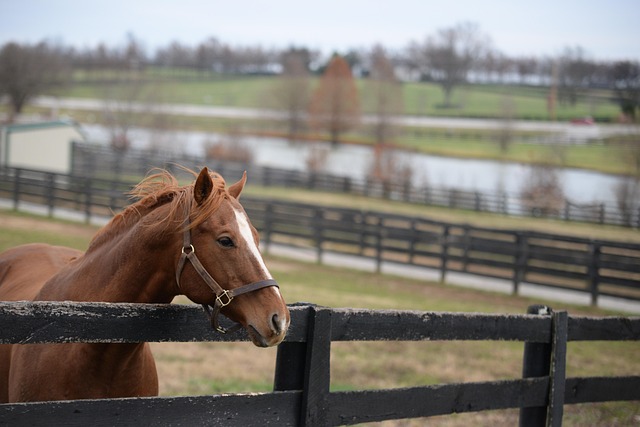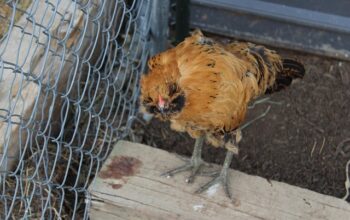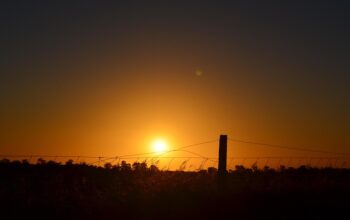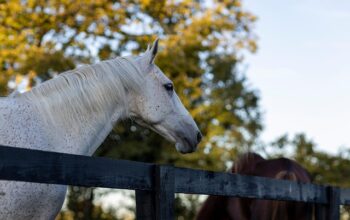Selecting a fence for farms involves balancing livestock needs and budget. For horses, sturdy yet flexible materials like vinyl or treated wood ensure safety and durability. Sheep and goats require robust metal mesh fences, such as high-tensile wire. Long-lasting, low-maintenance options enhance farm landscapes. Regular maintenance, including inspections and repairs, is crucial for optimal fence integrity and livestock protection.
Looking for the perfect fence to protect your horses and livestock? Choosing the right farm fence is essential for safety, security, and efficient management. This comprehensive guide explores the best options for fencing materials tailored to farm needs. From durable designs to expert installation tips and maintenance strategies, we’ll equip you with all you need to know for a long-lasting, effective farm fence solution.
- Choosing the Right Fence Material for Farm Livestock
- Designing a Secure Farm Fence: Safety and Efficiency
- Installation Tips for Long-Lasting Farm Fences
- Maintenance Strategies for Optimal Farm Fence Performance
Choosing the Right Fence Material for Farm Livestock
When selecting a fence material for your farm, consider both the needs of your livestock and your budget. For horses, a sturdy, yet flexible barrier is essential to ensure their safety and prevent escapes. Vinyl or treated wood fences are popular choices as they offer durability and resistance to rot and damage from wildlife. These materials also come in various styles, allowing you to choose aesthetic options that blend seamlessly with your farm’s landscape.
For livestock like sheep or goats, a more robust fence is required to deter them from wandering. Metal mesh fences, such as high-tensile wire, are highly effective at keeping animals contained while allowing adequate airflow and visibility. These fences can be customized for different heights and are known for their longevity and low maintenance requirements, making them an excellent investment for your farm.
Designing a Secure Farm Fence: Safety and Efficiency
Designing a secure farm fence is paramount for any horse or livestock owner, ensuring both safety and efficiency on your property. The right fencing solution should provide adequate protection from predators while allowing easy access for management and care. When choosing materials, opt for durable options like high-quality steel or sturdy wood that can withstand the elements and potential wear from animals.
Consider the layout of your farm and the specific needs of your livestock. Electric fences are an efficient choice for controlling animal movement within a larger area. Additionally, ensuring the fence is properly anchored to the ground and installed at the appropriate height—at least six feet high—is essential to prevent escapes or unwanted entries. Regular inspections and maintenance will also contribute to keeping your farm secure and safe for all its inhabitants.
Installation Tips for Long-Lasting Farm Fences
When installing a fence for farms, there are several tips to ensure long-lasting durability. First, choose high-quality materials such as galvanized wire or durable plastic to resist rust and degradation from the elements. Properly securing posts at the correct depth is crucial; consider soil conditions and consult with local professionals for optimal placement.
Next, ensure consistent spacing between posts, typically every 6 to 8 feet, to maintain structural integrity. Use tensioning devices and regular checks to keep the fence taut, preventing sags that can weaken the system over time. Regular maintenance, including cleaning and inspection, will extend the life of your farm fence, ensuring it continues to provide effective protection for your horses and livestock.
Maintenance Strategies for Optimal Farm Fence Performance
Regular maintenance is key to ensuring your farm fence remains in top condition and provides effective protection for horses and livestock. A well-maintained fence can last for many years, so implementing a simple yet consistent care routine is beneficial. Start by inspecting the fence line periodically, looking out for any signs of damage or wear, such as loose posts, bent wires, or broken rails. Promptly addressing these issues will prevent further deterioration.
Keep your farm fence clean and free from debris to maintain its structural integrity. Remove any accumulated leaves, branches, or other plant material that could obstruct visibility and provide hiding spots for potential pests. Additionally, regularly tighten connections at posts and brackets, ensuring all components are secure. Applying a fresh coat of paint or protective coating can also shield the fence from the elements, prolonging its lifespan.
When selecting a fence for your farm, prioritizing both quality materials and thoughtful design is essential for keeping livestock secure. By understanding the unique needs of your animals and implementing effective installation and maintenance practices, you can ensure a robust and long-lasting farm fence that enhances safety and streamlines efficient operations. Choose the right materials, design with security in mind, install meticulously, and maintain consistently – these steps are key to achieving the best fencing solution for your farm.




